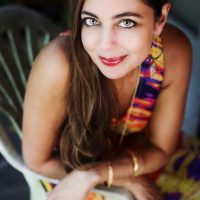View this post on Instagram
There is a crazy but enchanting theory of love in Plato’s classic philosophical text, Symposium, that is centered around the idea that humans were once fused sexes, circular beings that were chopped in half at Zeus’s command to diminish their power.
Some were male, some were female, and the rest were half male and female. After Zeus, who was the king of the Greek gods, halved the humans, they began roaming the face of the earth in search of one another.
Thousands of years later, this romantic—and fatalistic idea—that we are all wandering halves waiting, or actively looking, for our soulmates—our other halves—still permeates popular culture.
The notion that there is one person out there who completes us is widespread; while not everyone buys into it, thanks to rom-coms and romance novels, it is often at the back of our minds when we are single and dating, hopeful to meet that special someone.
And yet it does a disservice to us as individual beings, especially as women. This is largely because in many parts of the world, women are still not on equal footing with men.
In her seminal work The Whole Woman, feminist Germaine Greer wrote, “Every girl child is conceived as a whole woman, but from the time of her birth to her death she is progressively disabled.”
There are so many ways to unpack that statement, but cross-culturally, women are perceived as incomplete on their own in cultures as varied as India, China, and Iran. Completion—and social acceptance—often comes in the form of marriage to a man.
Three years ago, after a smorgasbord of terrible dates and failed relationships, all in the quest to reach this goal of matrimony and happily-ever-after, I decided to go on a “Man Fast”—a spiritual detox from dating—so that I could reconnect with myself, in particular my sense of wholeness as a woman, which I felt had been chipped away over the years.
I asked myself, how could I, if love never came along, be content with just myself, and fill my life up so that there was no emptiness? How could I return to this sense of wholeness that was rightfully mine, just by virtue of being human?
I grieved the plans, the constructs, that were holding me back, a process of de-structuring and de-conditioning, and freed myself from the tangle of expectations of who I was supposed to be as a woman and where I was supposed to be in my life by my late 30s. Instead, I focused on reconnecting with my sense of wholeness, and this is how Ayurveda started to play a huge role in my life.
I discovered Ayurveda—a sophisticated approach to wellness practiced in India for at least five thousand years—in my late 20s, but didn’t start deeply exploring it until my Man Fast. Based on the early Vedas, the oldest scriptures of Hinduism, Ayurveda—which translates to the wisdom or science of life in Sanskrit—is a holistic way of living deeply embedded in the culture of India, comprising science, religion, and philosophy. Its underlying mission statement of “returning to wholeness” really began to resonate with me, especially as I went on this journey of self-discovery.
During my Man Fast, I spent time in the lush, jungle-like environment of Kerala, the birthplace of Ayurveda, studying and submitting myself to various aspects of this ancient health system—which is gaining more popularity in the United States—under the auspices of a healer.
Ayurveda sees all life in nature as constantly evolving toward a higher state of consciousness, and it seeks to connect us with nature’s intelligence through practices such as yoga and meditation, in addition to the use of herbs and structured nutrition. It is by no means dogma and is not only for those interested in mystical matters. In fact, it considers each human being to be a miniature universe—whole and complete.
According to Ayurveda, diseases manifest from an imbalance of our doshas, the bio-energies of the universe that govern the body and make up our individual constitutions.
In a nutshell, there are three doshas made up of the “five great elements,” which, according to Hindu scripture, are earth, water, fire, air, and ether. Every substance—and every person—in the universe is made up of these five elements, the building blocks of life, though there is usually a predominant one. A human has a mix of these five elements plus the immaterial self, which is distinct from the body. The three doshas are known as vata (air/space), pitta (fire/water), and kapha (water/earth), and they can be assessed through an examination of physical and personality traits. Diet and lifestyle choices can either balance the doshas or make them go out of whack.
Over the course of nine months, which I likened to a re-birthing of the self, I immersed myself in Ayurvedic principles, and by the time I officially ended my Man Fast, I had reached a point where I felt healthy and whole, like there was nothing in my life lacking.
I had made an effort to put my relationship with nature, community, family, creative endeavors, well-being, and spiritual pursuits front and center, and started to prioritize other kinds of equally fulfilling love over romantic love—platonic, familial, agape, or spiritual. I gave myself permission to recognize my wholeness even in the absence of that fairy tale ending.
I no longer bought into the myth that we are all incomplete, wandering halves looking for our other halves.
Of course, it is when I finally surrendered, when I reached the point where I felt secure and whole in myself as a woman, that I met that special someone. We are now engaged and expecting our first child.
Ultimately, the quest for the individual—male, female, non-binary—is to become whole. We are all on a quest for wholeness. In order to truly thrive, we need to go beyond the idea of wanting to give or receive love—and learn how to actually become love itself.
In the meantime, though, if we learn to accept ourselves as the miniature universes that we are, we are well on our way to finding lasting peace and happiness. It’s when we reach that state, that we are more likely to find another miniature universe who wants to spend all of his or her free time with us.
~











Read 0 comments and reply